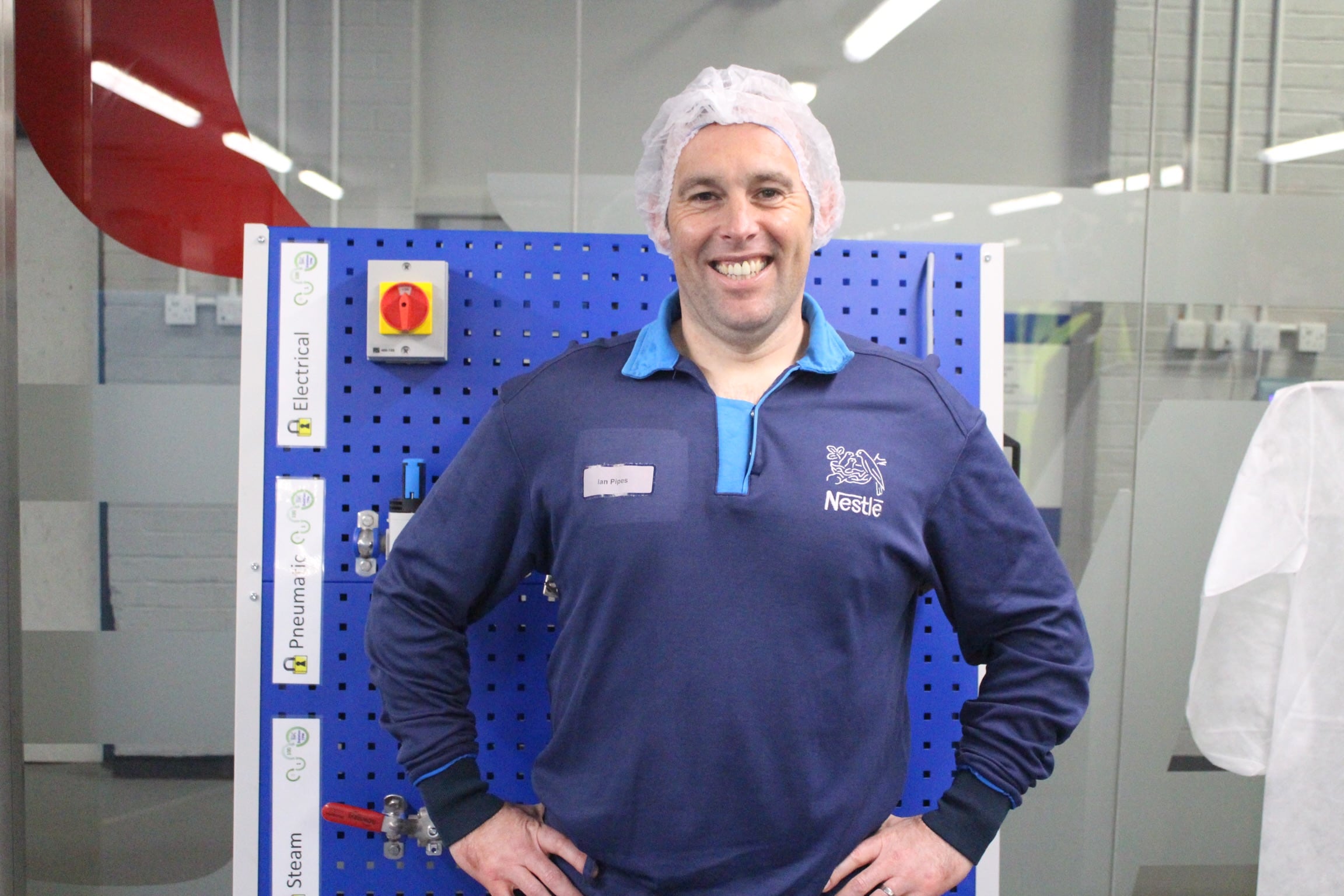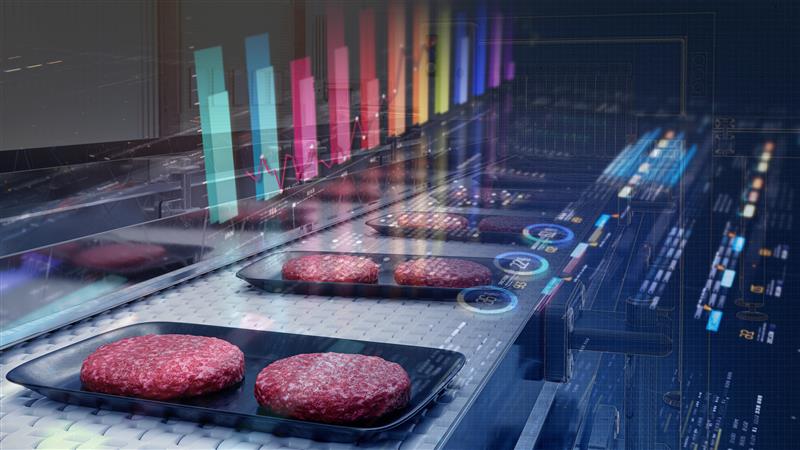Technology is transforming manufacturing - from smarter energy usage to precision processes that cut waste. But innovation isn’t only about machines and systems - it’s about people.
Smarter, greener, faster production
Manufacturing is at a turning point. Across the sector, automation, artificial intelligence (AI) and advanced digital tools are transforming how we work and our impact on the environment - cutting waste, optimising energy use and enabling levels of precision that were once unimaginable.
Today, technology is embedded in every stage of production, making factories more sustainable, efficient and competitive. At Nestlé’s Dalston site, for example - where we produce 25 million Nescafé cappuccino sachets each week - machines use predictive maintenance systems to detect potential issues before they escalate. Automated process controls allow equipment to self-correct, while AI flags when components such as valves or motors start to slow and digital dashboards give real-time insights into efficiency, waste and energy use.
Together, these advances are transforming the efficiency and resilience of UK manufacturing, enabling the sector to compete with other markets and securing its future at home.
But while machines and algorithms are expanding our technical capabilities, they are not replacing the human factor. Quite the opposite: they are enhancing roles and creating new opportunities.
Technology with a human touch
The gains from automation and AI are not just about speed - they are about precision, sustainability and unlocking new opportunities for people.
While digital tools provide the insights, it is our people who interpret, act and improve on them. Take predictive maintenance, for example. When AI highlights that a valve is opening more slowly than expected, it is the operator who decides how to respond - logging the issue, working with engineering teams, and often fixing the problem before it causes downtime.
Digital tools are also democratising data. Operators no longer need to rely solely on engineers to understand what’s happening inside complex systems; they can access the information themselves, make informed judgements, and contribute directly to efficiency gains.
This shift has turned historically unskilled positions into more dynamic, problem-solving roles. In the past, a production operator’s role might have been limited to monitoring a machine screen. Today, the same operators use tablets to analyse live data from platforms such as Braincube and TrendMiner, working closely with engineers to spot patterns, anticipate issues and implement solutions before they escalate.
As operators take on these more skilled and proactive responsibilities, new career opportunities are opening up. At Nestlé, we’ve seen operators without engineering backgrounds use digital systems as a springboard into formal training programmes. Some are now enrolled in schemes that will qualify them as engineers, while others have already moved from shop-floor roles into technical and engineering positions - clear proof that technology can open doors, creating new pathways for growth and opportunity.
This is the real story of technology-led manufacturing in the UK: smarter systems powered by human expertise. For the industry as a whole, it shows that the future of UK manufacturing will not just be defined by the adoption of new technology, but by the skills, ambition and creativity of the people who bring it to life.
Manufacturing in the North: powering communities as well as production
These pathways don’t just transform individual lives – they strengthen entire communities, showing why the future of manufacturing depends on balancing innovation in technology with investment in people. Without skilled and motivated teams, even the smartest of systems won’t reach their potential.
Factories like Dalston in Cumbria are the heartbeat of local economies, sustaining jobs, skills and communities in areas where opportunities can otherwise be limited. Around 70% of our 350 colleagues live within five miles of the factory gates and each year, we spend around £25 million with farmers in a 50-mile radius on fresh milk. Combined with salaries, that’s an estimated £36 million flowing back into the local economy annually. And the impact ripples even wider through suppliers, contractors and the businesses that serve our workforce.
This is why manufacturing remains so important to the North of England. In regions where heavy industry has declined, food and drink manufacturing has stepped into that economic void, offering secure, skilled jobs and a clear pathway for young people. At Dalston, apprenticeships, graduate schemes and upskilling programmes mean we can bring in new talent, give them the chance to learn, and show them a long-term career in the sector.
But sustaining that contribution depends on staying competitive. Labour costs are higher in the UK than in many markets overseas, which means we must use technology to be more efficient, more sustainable and more agile. If we do that, we can secure manufacturing jobs here for the next generation, while keeping our communities strong and resilient.
As someone who grew up locally and has worked his way from the shop floor to factory manager, I know just how vital these opportunities are. Manufacturing is not only about producing goods - it’s about producing futures. By balancing cutting-edge technology with investment in people, we can ensure factories like Dalston remain engines of innovation and opportunity for years to come.
For me, that’s the most exciting part of this new era: technology doesn’t just change what we make, it changes who we can become.




